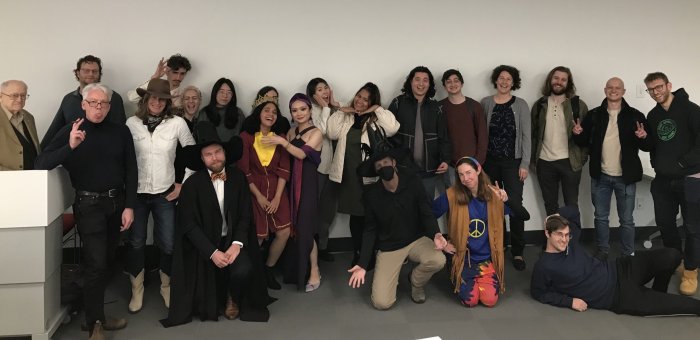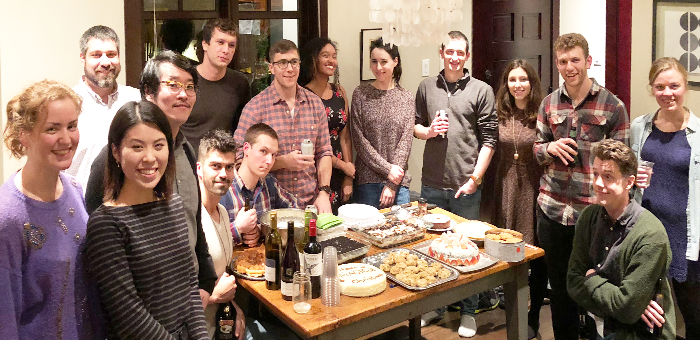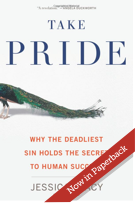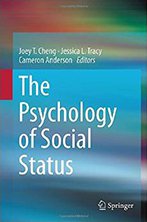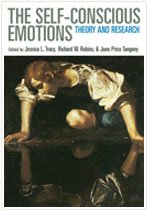The Emotion & Self Lab
In the Emotion and Self Lab at the Department of Psychology at the University of British Columbia, we study the evolutionary function, nonverbal expression, and psychological structure of emotions and self. Much of our research is focused on the place that self and emotions meet: the self-conscious emotions of pride, shame, embarrassment, and guilt. But we also study more basic level emotions linked to moral behavior, like disgust, as well as other complex social emotions, like humility and schadenfreude. We use a wide range of methods to study emotional processes, including behavioral observation and coding, social-cognitive techniques (e.g., reaction time assessment, eye-tracking), cross-cultural and cross-species comparisons, narrative assessment, and physiological (e.g., hormone) assessment; and we use experimental, cross-sectional, and longitudinal designs. In an effort to improve the study of self-conscious emotions, we have developed several measurement tools that are available to other researchers. These tools can be downloaded from this website. In all of our research, we tend to take a functionalist perspective, asking why questions about emotions and self, and seeking both ultimate and proximate answers.
Featured Media »
The Science of Envy in the Age of COVID-19
Jess was recently featured in an article published by the Globe and Mail where she outlines the utility of and differences between envy and jealousy. This article discusses the mechanisms behind social comparison as we move into a post-pandemic era, and whether envy and jealousy are helpful or detrimental to society.
Click the link to learn more about these emotions in the context of a pandemic!
This article has been featured on:
The Feelings Lab Episode 2: Embarrassment

Check out Jess' feature on the second episode The Feelings Lab podcast, where she discusses the feeling of embarrassment alongside Dr. Alan Cowen, Dr. Dacher Keltner, Matt Forte, and Ali Kolbert!
This article has been featured on:
The Action-Unit Imposter Effect
Check out media coverage of our recent paper, published in Psychological Science, showing that a downward head tilt leads to increased perceptions of dominance, due to illusory facial muscle activity.
This article has been featured on:
Taking ginger pills can make disgusting ideas more palatable.

Francesco Carta / Getty
By Sam Wong
We often say our sense of morality is guided by our gut feelings – and this may be truer than we realise. A set of experiments using the anti-nausea powers of ginger have provided the strongest evidence yet that bodily sensations play a key role in some of our moral judgements.
Previous studies have reported that the more disgusted people feel, the more wrong they judge moral infractions to be. However, it’s not clear whether feelings of disgust guide moral judgements, or if it …
Read the full article in the New Scientist here >>
Featured Project »
Meaning in Life and Science Beliefs
This relatively new project examines the relationship between humans’ need to experience meaning in life and our understanding of materialist science, which seems to deny that meaning. This work is led by Jess, and is summarized here. Also see our… [...]
Read more »Emotions and Morality
In this line of work, led by Conor Steckler, we are examining how (and why) emotions influence moral judgment. [...]
Read more »Latest News »
Jess Tracy, Ian Hohm, and Ari Makridakis present new ideas (and some data) suggesting that science erodes humans’ ability to find meaning in life, now published at Current Directions in Psychological Science.
New research led by lab collaborator Ashley Martin shows that gender cognition– the tendency to see gender in non-human entities, and to see those entities as more human to the extent that they are gendered– is a human universal. See here for the PNAS article.
In research led by Zak Witkower, smile variation is shown to accurately leak personality. See here for the article in press at PNAS-Nexus.
Our review of over a decade of work from the lab on pride and social hierarchy, now published in the Annual Review of Psychology.
Upcoming Talks »
Jess Tracy, The Nature of Pride and Social Rank, Keynote Address, UBC Postdoc Research Day.
December 9, 2024
Vancouver, BC
Gabrielle Ibasco, “How Group-Based Pride Regulates Guilt and Shame for Intergroup Transgressions,” in the symposium, Novel Strategies for Regulating Group-Based and Collective Emotions (Chairs: G. Ibasco & J. L. Tracy), Society for Personality and Social Psychology Annual Conference.
February, 2025
Denver, CO.
